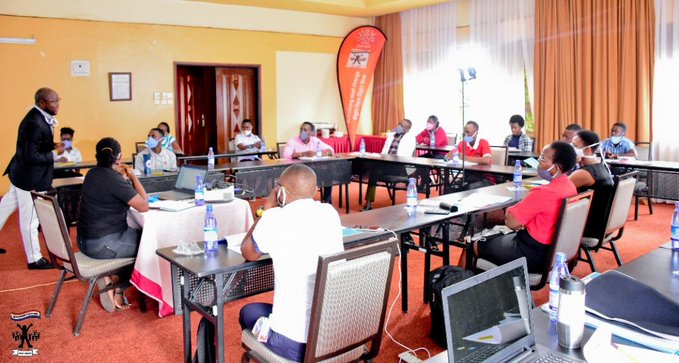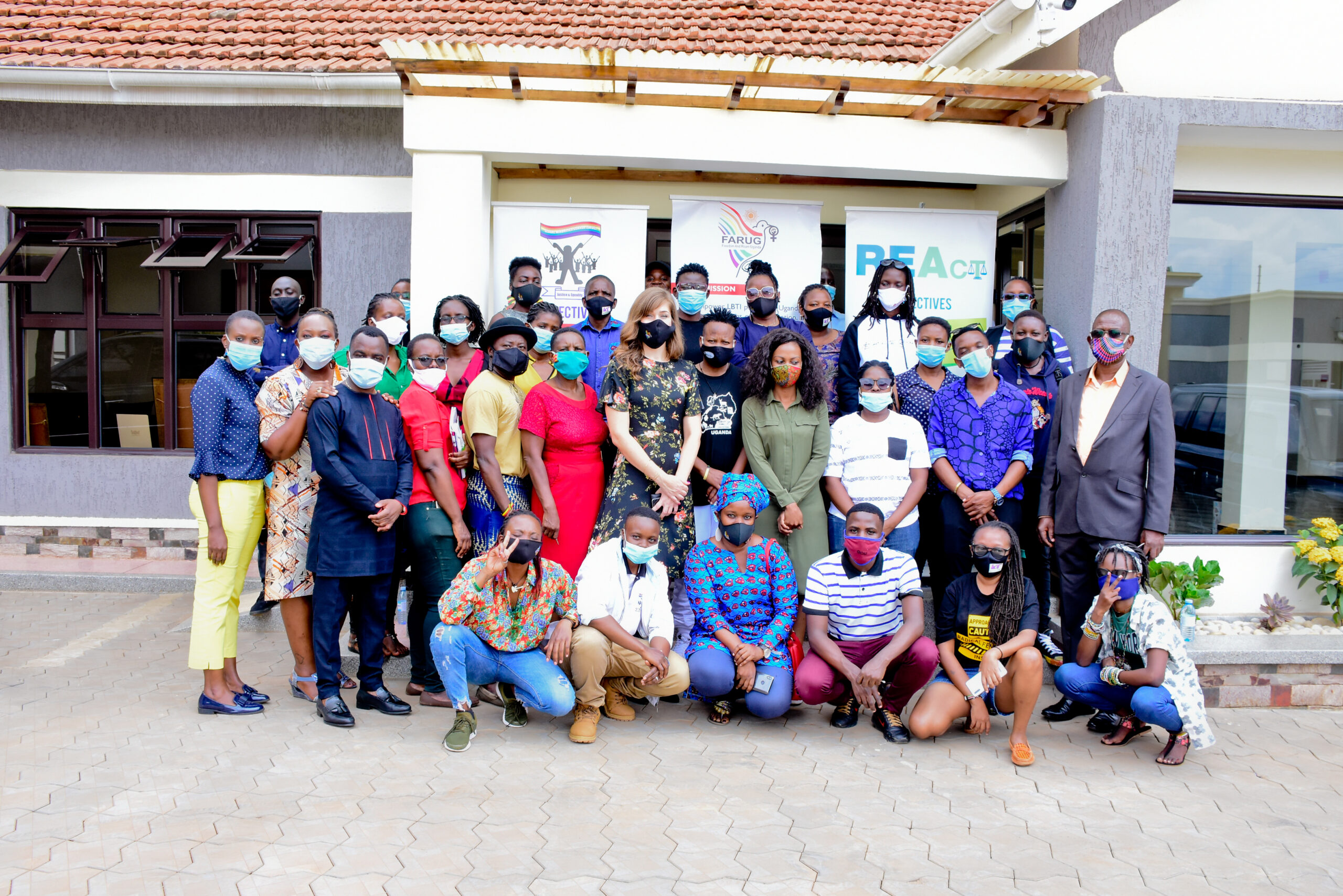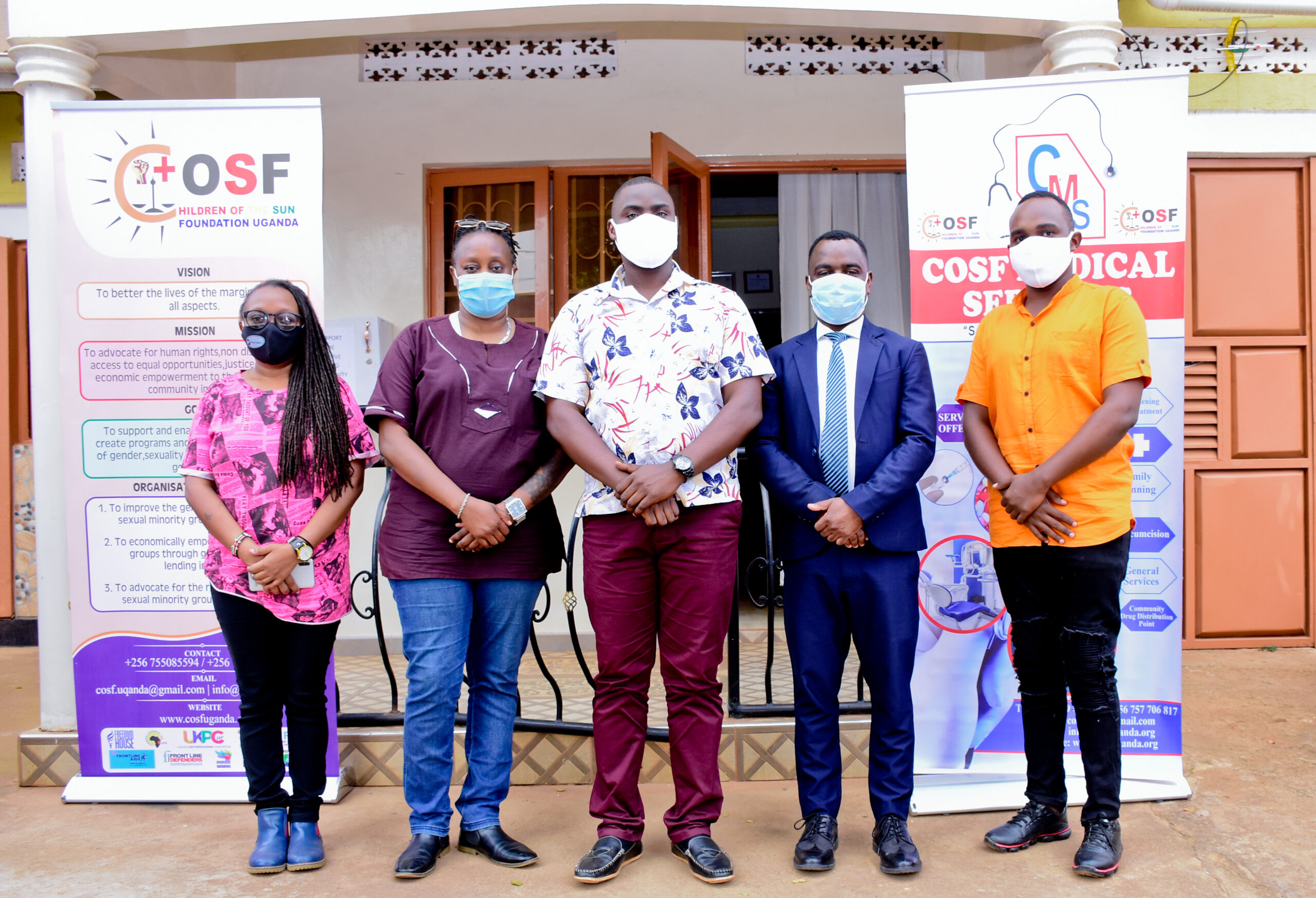Lesbian Gay Bisexual Transgender Intersex and Queer (LGBTIQ) people in Uganda continue to face discrimination in different ways especially in health care settings. This is why it is important that the health system is brought on board to provide friendly services to LGBTIQ people. While speaking during the Know Your Rights Eastern Region community dialogue organized by Sexual Minorities Uganda, Dr Jasper Kebesu from Mbale regional referral hospital said there’s lack of knowledge on how to deal with gender and sexual minorities in Eastern Uganda. He says in 2018 the MOH wrote to regional referral hospitals and asked them to provide non-discriminatory health services to Key Populations(KPs) adding that although the communication was passed, there are huge challenges like serious administrative gaps in terms of awareness, attitude and commitment to provide health services to sexual minorities.
Dr Kebesu noted that, in some regional referral hospitals some directors don’t want to hear about anything to do with KPs. This in the end affects how health care providers deliver services. He said, the few forefront health workers do not feel safe, they do not feel protected, they don’t feel that providing health services to KPs is part of the hospital’s responsibility at all. Health workers need to be engaged to recognise and appreciate the fact that providing services to KPs is not promoting homosexuality but recognising that they are a priority population that have a diverse way of presenting themselves. “If we don’t provide services to KPs we are not doing anything to end the HIV epidemic.” Said Dr Kebesu.
There’s a shortage of drugs in the Eastern region. According to Dr Kebesu, just last month he had to refer 5 men who have sex with men (MSM) to another hospital. Referral in the times of COVID comes at great cost implications like transportation, accommodation and even discomfort while travelling for medication. He said, “If we do not treat STIs the spread of HIV will continue to rise. Besides that, some of these conditions distort the quality of life. We also need to continue to engage KPs, this gives us an opportunity to learn from them, they learn from us too on how to take care of their health. KPs may not be free to speak to a fellow KP due to stigma, fear of outing and blackmail. This is why I recommend they should be able to speak to a healthcare provider and if the provider thinks that a person is facing severe depression they can recommend a therapist. If we continue with these engagements, we’ll improve the healthcare service delivery sector.”
COVID-19 has affected service delivery towards the KPs. According to Dr Kebesu, there’s a significant reduction in the uptake and retention of PrEP because of transport challenges, there’s low access to HIV self-testing kits, there’s a lot of difficulty in follow up mechanism all these due to the hiked transport charges. “Another challenge, other than STI Drugs, is a shortage of lubricant and this has affected the way we provide health services because this means clients stop coming to the health centre. Staying away from health centres means they aren’t able to interact us in other aspects like mental health care and other non-communicable diseases.” He says.
Dr Kebesu concluded his presentation by mentioning that working with LGBTIQ organizations has created visibility and improved the indicators compared to 2016.




